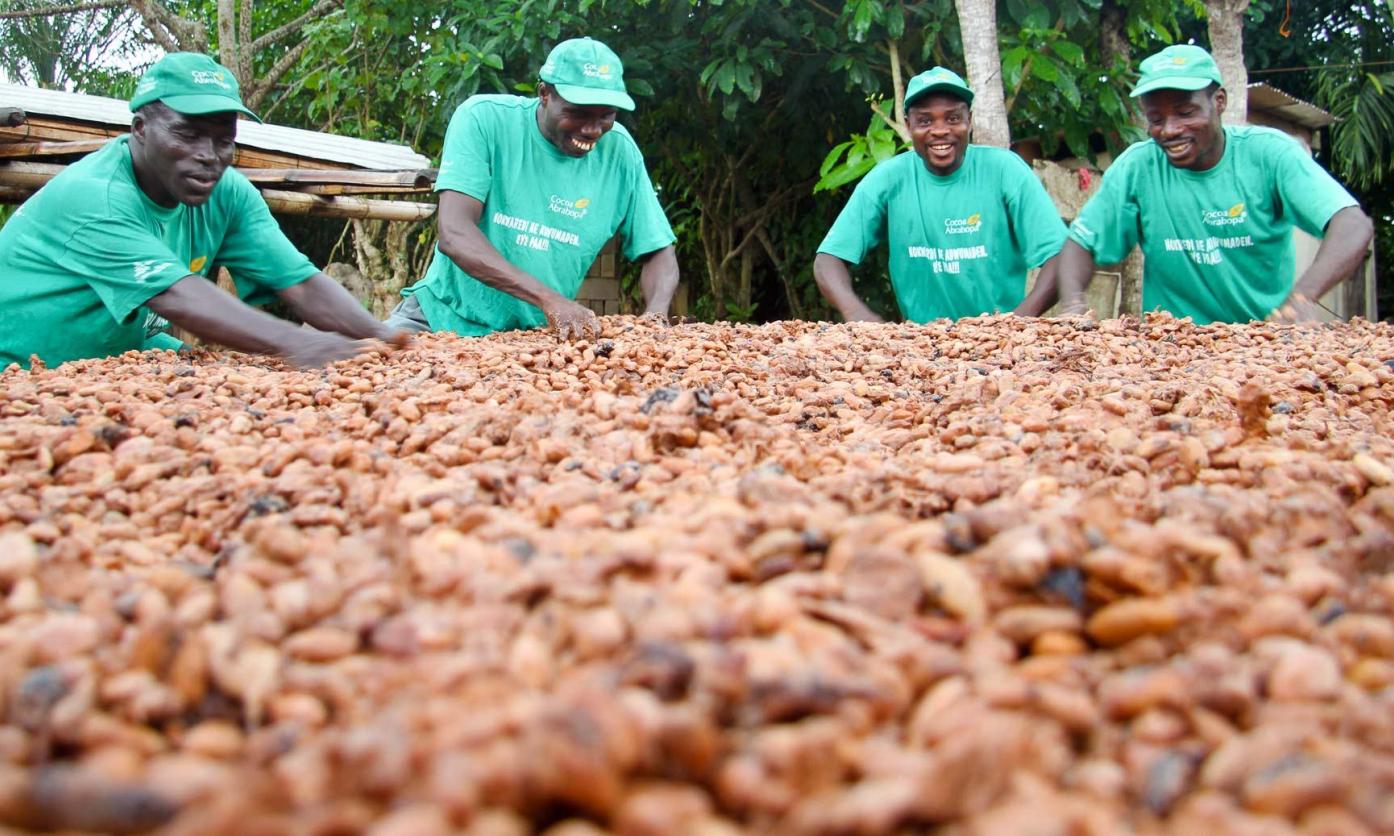Binkabi is building a digital trading platform that uses blockchain technology to facilitate fair trading for farmers – specifically SMEs in Africa. “Up until now these farmers were reliant on intermediaries who traded in US dollars and had the power to dictate prices,” says founder Quan Le (on the left in the photo). “Now they can trade directly with countries all over the world, in local currencies. The control is firmly in their hands.”
Quan Le was born in Vietnam, where he forged a career in finance. When the financial crisis hit in 2008, he was working in Africa, and saw how it impacted Nigeria, one of the continent's major economies. “There was a ‘silent crisis’,” he says. “The mainstream had a voice, but for small farmers, the price they could get for their crops was often dictated by big traders. The traders guaranteed security, so it gave them peace of mind, but took away profit.”
Barter Block
Quan decided to set up an alternative. It uses blockchain to make the steps taken by both parties during the trading process direct, simple and transparent. The start-up’s core innovation is Barter Block, the technology that enables cheap and secure trade through local currencies, rather than dollars.“Let’s say Vietnam exports rice to Nigeria and imports cashew nuts, also from Nigeria,” explains Quan. “Normally you would have four conversions – of Vietnamese dong to US dollars, then US dollars to Nigerian naira, and then back again. We combine them, so the importer of cashew nuts in Vietnam pays the exporter of rice, also in Vietnam. This one ‘barter block’ saves the firms up to 10% in trade value and shortens the supply chain.”
“We want to keep the value in the local community”- Quan Le, BinkabiBlockchain but not Bitcoin
“One big challenge for any platform is that sellers won’t use the platform unless there are buyers, and vice versa. Farmers’ co-ops must first become members to post their commodity, and interested buyers can then negotiate a price. We decided to encourage participation by representing membership with a token, BKB, which doubles as a perpetual discount.“Another challenge is that people often associate blockchain with crypto currencies. ‘Oh, you trade using Bitcoin?’ they say. But we’re not. So we're educating people using social media and webinars, and visiting locations in our target markets – West Africa and Southeast Asia.”Bi Nka Bi – ‘no-one should bite each other’The team is currently working with invited customers to test Binkabi’s digital marketplace so that it can fine-tune the technology and address challenges. The commercial launch of the trading platform should take place at the beginning of 2019.What’s next for Binkabi? Quan Le wants to create a decentralized commodity exchange on the platform. It will also use tokens, this time representing commodities. “Each token will stand for, say, one ton of rice. The farmer can either sell the rice at harvest or use the token as collateral, borrowing money to live on while waiting for a better selling price. Binkabi means ‘no-one should bite each other’ in West Africa. Basically, we want to keep the value in the local community. We call it a ‘social circular economy’.”
